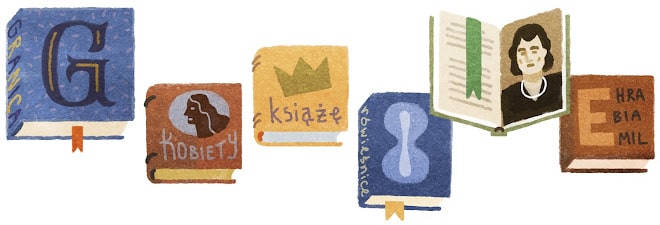Zofia Nałkowska: A Literary Pioneer and Advocate for Social Justice

Zofia Nałkowska (10 November 1884 – 17 December 1954) was a prominent Polish writer, known for her significant contributions to literature and her unwavering commitment to addressing social issues. Her life and career were marked by a deep sense of social responsibility, and her literary works continue to be celebrated for their exploration of human nature and societal challenges.
Life & Career
Zofia Nałkowska was born on November 10, 1884, in Warsaw, Russian Poland. She was the daughter of Waclaw Nalkowski, a geographer and publicist, and came from a family of intellectuals with a dedication to social causes.
Nałkowska’s early life was influenced by her family’s commitment to socialist ideals. This upbringing instilled in her a sense of social consciousness that would shape her writing and activism throughout her life.
Her literary career began in the early 20th century when she started writing essays, short stories, and novels. She became a prominent member of the Polish modernist literary movement, which aimed to address contemporary societal issues through literature.
One of her most acclaimed works is “Granica” (The Boundary), a novel that delves into the complex relationships and moral dilemmas faced by its characters. The novel is often seen as a masterpiece of psychological realism and social criticism.
Throughout her career, Nałkowska explored themes such as social inequality, human nature, and the impact of historical events on individuals. Her writing was characterized by its deep psychological insight and a commitment to addressing the human condition.
Legacy and Awards
Zofia Nałkowska’s legacy is rooted in her literary contributions and her commitment to social justice. Her works have left an indelible mark on Polish literature, and she is often celebrated as one of the most influential modernist writers of her time.
As a writer, she was not limited to fiction but also delved into non-fiction, producing essays and reports that addressed pressing social issues. Her most notable non-fiction work is “Medallions,” a collection of essays that documented the Holocaust and the tragic fate of its victims. This work played a significant role in bearing witness to the horrors of World War II.
Nałkowska’s commitment to social justice extended beyond her writing. She was actively engaged in various social and political causes, advocating for women’s rights, education, and public health. Her efforts to raise awareness and drive positive change in society earned her the respect and admiration of many.
Although specific awards may not be widely documented, Zofia Nałkowska’s contributions to literature and her unyielding commitment to addressing societal issues have left an enduring impact. She is celebrated not only for her literary achievements but also for her dedication to the betterment of society.
In conclusion, Zofia Nałkowska was a literary pioneer and a social advocate whose works continue to be relevant and impactful. Her ability to use literature as a means to explore the human condition and to shed light on social injustices is a testament to her enduring legacy in the world of literature and social activism.
On 10 November 2014, a Google Doodle was created to celebrate Zofia Nałkowska’s 130th Birthday.
Observer Voice is the one stop site for National, International news, Sports, Editor’s Choice, Art/culture contents, Quotes and much more. We also cover historical contents. Historical contents includes World History, Indian History, and what happened today. The website also covers Entertainment across the India and World.
Follow Us on Twitter, Instagram, Facebook, & LinkedIn

